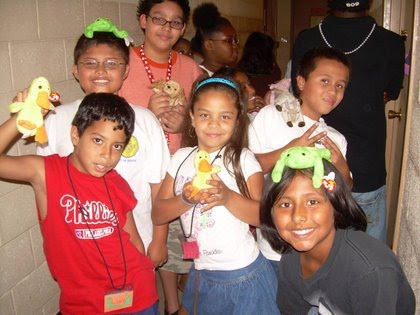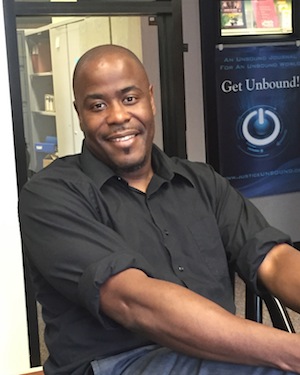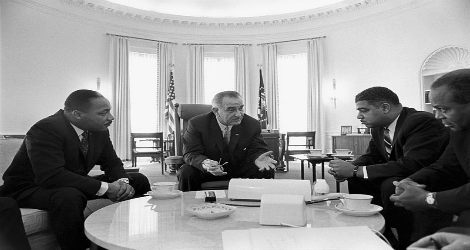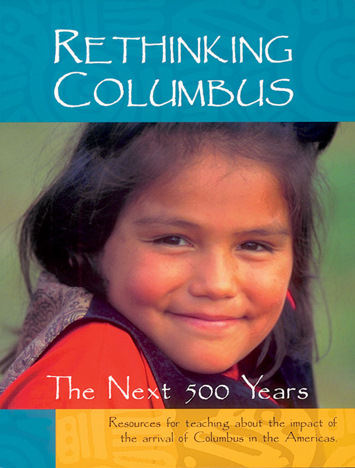Report from Unbound Managing Editor, Patrick David Heery
January 18, 2012Last week (Jan 11-16), I visited New Jersey on behalf of Unbound. At first it might seem odd that an e-journal would be “traveling.” Isn’t that the whole point of being online? That we are everywhere, immediately? But to be effective and genuine to the gospel, Unbound needs to be more than your typical journal or website. Unbound needs to have one leg online and the other on the ground—an interactive, multimedia website founded in a sustainable infrastructure of grassroots input and organizing: local communities, not only acting upon the ideas and resources provided, but also driving the themes and content of the site.

Throughout my time in Jersey, I met one-to-one and with groups to explore partnering their ministries and Unbound. On Thursday, I met with UMIO (United Mercer Interfaith Organization), a faith-based community organizing group in Trenton. That’s Trenton, the capital of New Jersey, bursting with some of the most engaging, prophetic people you will ever meet—home to congregations like Westminster Presbyterian Church, “a multicultural, multigenerational, multimedia urban church,” pastored by the Rev. Karen Hernandez-Granzen, and featuring Get SET, an afterschool multilingual arts and tutoring program for children and youth, “a sanctuary… from the violence and gang presence prevalent in our communities and schools.” For, Trenton is also a place of grinding poverty, racial injustice and division, and extremely underfunded public education, presenting a stark contrast to the wealthy suburbs just a few miles out.
I had the fortune of working last year as a proto-organizer for UMIO, and last Thursday, I rejoined them to learn about their work and invite their involvement with Unbound. I was particularly excited to learn about Revive! 2012, a reprisal of the 2010 Jesus and social justice revival, Revive!
___________________________________________
I listened as one seminarian described church members—elders, deacons—shackled with ankle tracking bracelets and with the uncertainty of deportation because they are “undocumented immigrants,” though asylum-seekers and (many) tax-paying community members, some of them for over ten years.
___________________________________________
Later that same day, I led a talk at Princeton Theological Seminary called “Social Media: The New Landscape for Mission and Justice,” sponsored by Seminarians for Peace and Justice, Environmentally Conscious Organization of Seminarians, and the Association of Latin@/Hispanic American Seminarians. We discussed the church’s general failure to think strategically about social media and not simply slap a page onto Facebook. Students expressed the need for a national network of justice-minded seminarians, sharing resources, ideas, and fellowship. I listened as students and community members discussed the justice issues on campus and in their congregations: superficial responses to diversity; the categorization of sexual and gender identity as a theological (read: abstract) issue, rather than an issue of personal lives and oppression; the dearth of activism and organizing on the seminary campus; lack of sexual assault resources; wealth disparity; the stress of unemployment; and hate in Christian churches toward Muslims and people of Middle Eastern descent. I listened as one seminarian described church members—elders, deacons—shackled with ankle tracking bracelets and with the uncertainty of deportation because they are “undocumented immigrants,” though asylum-seekers and (many) tax-paying community members, some of them for over ten years.

On Friday, local Presbyterian pastor, Rev. Jeffrey Vamos, and I spoke to a Princeton seminary class on community organizing. I described working with Rev. Vamos to create a church and community organizing internship. I discussed the hybrid model of social media and organizing. Rev. Vamos described congregational organizing and his history in Palo Alto, California, of organizing to construct a multimillion dollar, dignified and empowering refuge for the homeless. And again, we listened. Rev. Vamos and I asked the class to tell us why they had enrolled. One student had been involved in secular organizing but wanted to see how it could be faith-based. Another had seen his fill of activism in his community, with nothing changing, and so wanted to find a methodology that resulted in real change and empowerment. Others described how they were burnt out, frustrated that so few seemed to care and get involved, and intrigued by this notion that, instead of telling people what they should care about, we should begin by asking what they care about. We heard concerns about white privilege, that justice work not be co-opted by suburbanites wanting to be “saviors.”
___________________________________________
Unbound needs to have one leg online and the other on the ground—an interactive, multimedia website founded in a sustainable infrastructure of grassroots input and organizing: local communities, not only acting upon the ideas and resources provided, but also driving the themes and content of the site.
___________________________________________
On Sunday, I attended a few worship services, including an alternative service called Worship in a New Key. In the morning, I heard Rev. Vamos preach about the “drum major instinct,” dubbed by the Rev. Dr. Martin Luther King Jr. to refer to the practically ubiquitous desire to be up front, leading the charge, seen not as we are but as we wish to seem (and how we likewise see others as pigeon-holed facsimiles of their real selves). Later that evening, Leigh Stuckey meditated on the verse from 1 Samuel 3 that reads, “The word of the Lord was rare in those days; visions were not widespread.” In the cacophony of beeps and tweets, cell phones ringing and commercials blasting, perhaps in our postmodern world, she pondered, we have drowned out the word of God, and so we require an interruption of silence (a point very poignant for this e-journal). Perhaps, she continued, visions of God are rare because our eyes choose to behold not God, but money and comfort and commercialism… because, like the prophets of old used to say, we have neglected the poor and the cause of justice.
When the time came to depart, I had a strong feeling that the visit had been a success. Not only did I find people enthused about Unbound, interested in writing, organizing, and partnering with us, but I also had an opportunity to hear the issues weighing on people’s minds and hearts—and to glimpse their visions of God, bold and courageous visions demanding more of this world than present social systems provide.
I left New Jersey inspired. And grateful to have shared in those visions.
__________________________________
Contact us if you are interested in writing, organizing, and/or partnering with Unbound. Contact us if you are interested in having Unbound visit your community!
Patrick David Heery, Rev., is the Managing Editor of Unbound and staff person of the Advisory Committee on Social Witness Policy. He was recently ordained as a Teaching Elder in the Presbyterian Church (U.S.A.) and is a graduate of Princeton Theological Seminary with a Master of Divinity.







Unbound Social